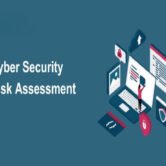
Introduce cybersecurity compliance requirements (e.g., GDPR, HIPAA) for new businesses.
Introduction
As new businesses enter today’s digital marketplace, they are immediately immersed in a landscape shaped by data—how it is collected, processed, stored, and shared. This data often includes sensitive information such as customer identities, payment details, health records, or behavioral insights. With the growing concern over privacy and the increasing sophistication of cyber threats, governments and industry bodies around the world have established legal and regulatory frameworks to enforce responsible data protection. These cybersecurity compliance requirements, such as GDPR, HIPAA, CCPA, and others, are not optional checkboxes—they are mandatory standards that new businesses must understand and adopt from the start. Ensuring compliance not only avoids penalties but also builds trust and credibility with customers, partners, and investors.
Understanding the Scope of Compliance
Cybersecurity compliance refers to the process of meeting specific legal or regulatory standards related to the protection of digital information and systems. These standards vary depending on factors such as the type of data handled, the industry in which the business operates, and the geographical locations of customers or users. For new businesses, the first step is to identify which regulations apply to their operations based on their audience and the nature of their services. Whether a startup is launching an e-commerce site, a mobile health app, or a data-driven SaaS product, compliance requirements will directly influence how security is architected from day one.
General Data Protection Regulation (GDPR)
GDPR is a comprehensive data privacy regulation that applies to any business—regardless of its location—that handles the personal data of individuals residing in the European Union. For new businesses, GDPR mandates clear responsibilities, such as obtaining informed consent before collecting data, ensuring data minimization, providing the right to access or delete personal information, and reporting data breaches within 72 hours. Additionally, businesses must implement appropriate technical and organizational measures to safeguard personal data, such as encryption, access controls, and audit trails. Failure to comply with GDPR can lead to fines of up to €20 million or 4% of global annual revenue.
Health Insurance Portability and Accountability Act (HIPAA)
For startups in the healthcare space or those handling protected health information (PHI) in the United States, HIPAA sets strict security and privacy standards. HIPAA requires businesses to implement administrative, physical, and technical safeguards to ensure the confidentiality, integrity, and availability of PHI. This includes secure data transmission, role-based access control, incident response plans, and regular risk assessments. HIPAA also mandates clear privacy notices, breach notification procedures, and business associate agreements for vendors handling PHI. Startups that handle health data—such as telemedicine platforms or fitness apps integrating with medical systems—must align their data practices with HIPAA from the outset.
California Consumer Privacy Act (CCPA)
The CCPA grants residents of California specific rights over their personal information, such as the right to know what data is collected, the right to opt out of data sales, and the right to request deletion. While it applies to businesses meeting certain thresholds—such as having annual revenues over $25 million or handling the data of 100,000 or more consumers—startups with rapid growth ambitions or plans to operate in California should plan for CCPA compliance early. Like GDPR, CCPA also emphasizes transparency, requiring privacy policies and clear communication about data practices.
Other Sector-Specific and Regional Regulations
New businesses must also consider additional regulations that may apply based on their domain or customer base. These include the Payment Card Industry Data Security Standard (PCI DSS) for businesses handling credit card transactions, the Federal Information Security Management Act (FISMA) for those working with U.S. federal agencies, and global frameworks such as Brazil’s LGPD or Canada’s PIPEDA. Understanding these frameworks ensures startups avoid legal pitfalls as they expand into new markets or form strategic partnerships.
Embedding Compliance into Security Strategy
For startups, cybersecurity compliance is not just about avoiding fines—it is a chance to build secure systems that foster customer trust. Embedding compliance early in product design and operational workflows allows businesses to grow with confidence. This involves documenting data flows, encrypting sensitive information, training employees on data handling policies, and adopting security frameworks such as ISO 27001 or NIST. Working with legal advisors, compliance consultants, or third-party security platforms can also help new businesses establish robust, scalable compliance programs.
Conclusion
Cybersecurity compliance requirements are a critical part of launching and sustaining a modern business. Regulations like GDPR, HIPAA, and CCPA define how data must be protected and empower consumers to take control of their personal information. For startups, understanding and implementing these requirements from the beginning is not only a legal necessity but a strategic advantage. It signals professionalism, builds customer loyalty, and creates a foundation for secure, scalable growth. In an era where data is currency and breaches can break reputations, compliance is both a shield and a statement of trustworthiness.
Hashtags
#Cybersecurity #Compliance #GDPR #HIPAA #DataProtection #NewBusiness #CybersecurityAwareness #RegulatoryCompliance #DataPrivacy #BusinessSecurity #InfoSec #CyberRisk #SmallBusiness #TechCompliance #PrivacyLaw #DataSecurity #BusinessGrowth #CyberThreats #DigitalSafety #ComplianceTraining





